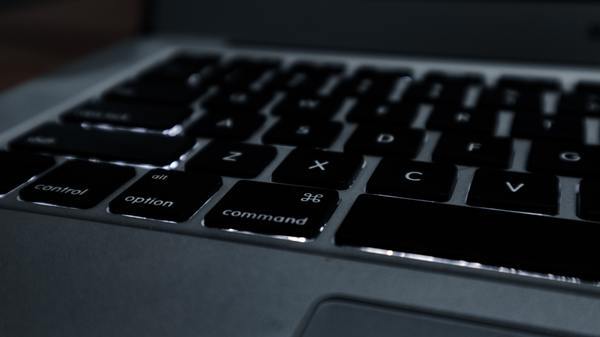
A sample of the heat seen after a MacBook Air benchmark. (Max Tech/via YouTube)
This current era of tech YouTube is really interesting to watch, because it reflects the fact that video creators can develop a level of journalistic rigor that gets beyond their roots as people who might have gotten into this for fun, and just happened to find an audience along the way.
But occasionally, drama creeps up because of the natural flood of content that bleeds through, due to various disagreements on different issues. It’s a constant flood of disagreement, really. This week, the person lobbing the bombs is, honestly, kind of unexpected—a guy who had been on the other side of the journalism discussion for quite some time, only to move into the creator realm relatively recently.
Rene Ritchie, a longtime reporter on Apple-related topics for iMore, struck out on his own as a full-time YouTuber about two years ago. And in that time, Ritchie has tried to offer an even-headedness on all things Apple that was at times hard to get in a world that seemed obsessed with three things—rumors, repairs, and reviews. Ritchie is clearly skilled at breaking through the noise on a lot of different things. His channel is good, even if it sometimes reads a little too pro-Apple for some people’s tastes.
However, he appears to have reached his breaking point around benchmarking, publishing a video this week that questioned the hype being directed towards computing benchmarks on various YouTube channels.
Now, to be clear, the latest round of benchmarks hasn’t exactly been friendly to Apple. The M2 chip, while more performant, runs hotter than the processor that it replaced, but on top of that, Apple seems to have gone out of its way to kneecap the base models of its latest MacBooks by releasing a version of the computer with a 256GB SSD that only populates one of the two DRAM slots—something that affects the performance of the storage because it doesn’t benefit from parallel storage channels. (If you’re familiar with the performance cut you might see from putting RAM in a single slot versus two slots, same concept.)
The channel that caught this fact, Max Tech, has a tendency to publish a lot of pieces about new computers, with a lean on Apple (though it dips into PCs a bit as well). Some of its coverage, as well as that of other channels, has been perceived by certain viewers as being over the top, or unrealistic due to the nature of PC benchmark software representing a synthetic test. But others find these data points useful, because they often can highlight some broader trends or uncover some notable limitations. (I think, for example, it’s useful to note that the newer Apple machines produce more heat than the earlier ones, which removes a bit of the unique value proposition the computers have.)
Max Tech is a channel that does benchmarks of new hardware; simply put, it’s what they’re known for.
Ritchie’s approach here? Take down the entire culture of benchmarking on YouTube, implying that those who do it are trying to create cheap content that negatively influences our opinions on different types of technology, all in the name of increasingly hard-to-earn views. Which … seems like a weird argument to make mere weeks after those same benchmarkers caught a cut corner in Apple’s latest laptops.
https://bsky.app/profile/shortformernie.bsky.social/post/3l7rhu6jpoi2p
When I saw Ritchie’s takedown, I really didn’t like it (and kind of told him that, to be honest), in part because I sort of felt like it was kind of a gatekeep-y takedown of YouTubers who are basically competing with him for eyeballs.
To some degree, I get it—it’s possible Ritchie is getting sick of trying to play professional interpreter of Apple, while other YouTubers without PR access to the company aren’t afraid to be more skeptical. Because he has a more traditional journalism/analysis background, he’s often put in a position where his viewers ask him to comment on every single Apple-related controversy that comes up on YouTube. Maybe he wants to change his focus so he can discuss bigger points of debate and not just be “the guy who defends Apple” on YouTube. He’s a known-enough figure, and one with a honed enough voice, that he can pull it off.
But I do think that, in his efforts to push back on the culture of benchmarking, he might have put himself at risk of being pulled down with the muck by calling his competitors’ work toxic and making insinuations about other creators. I mean, if you don’t like benchmark videos, you don’t like benchmark videos. Just because you don’t like that aspect of tech YouTube doesn’t mean you have to make insinuations about others who do this stuff, suggesting that they’re trying to specifically goad a response out of people for reasons of clickbait.
In some ways, it gets a little close to “these YouTubers aren’t really journalists” for my taste, and honestly, I think that’s not a great direction for YouTube tech culture to go.
Let’s admit that benchmarks have value for some, but maybe not for others. Let’s skip the ragefests and disagree on more even terms.
Time limit given ⏲: 30 minutes
Time left on clock ⏲: 39 seconds



